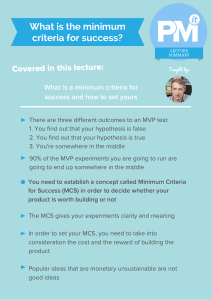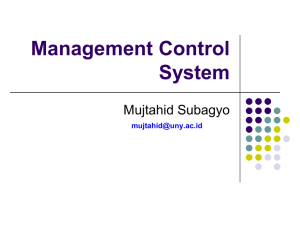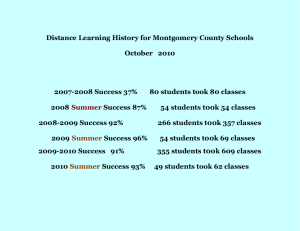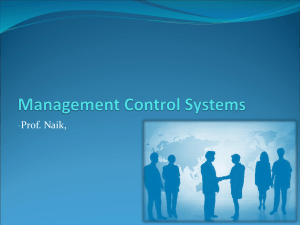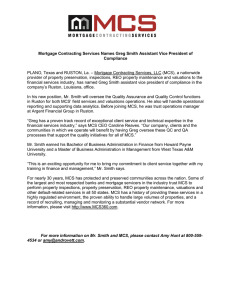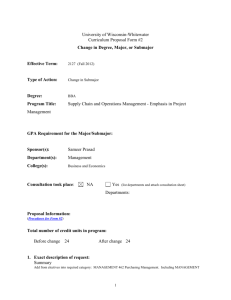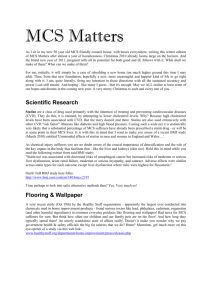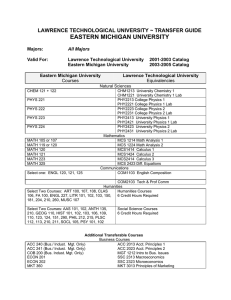Department of Accounting NUS Business School National University
advertisement
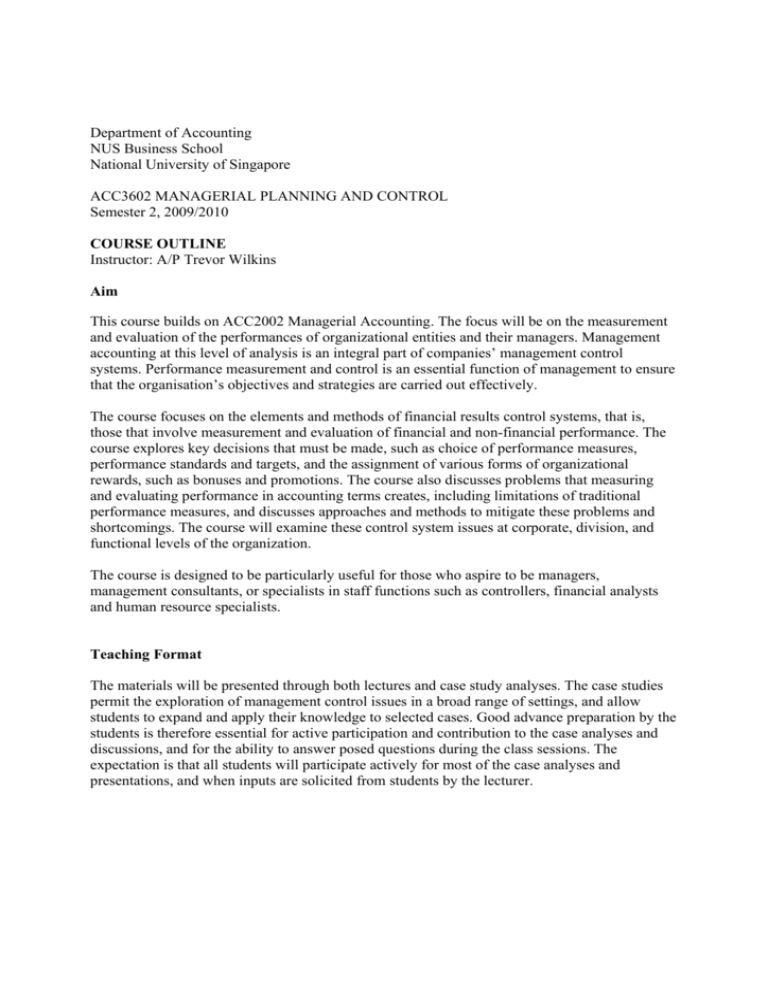
Department of Accounting NUS Business School National University of Singapore ACC3602 MANAGERIAL PLANNING AND CONTROL Semester 2, 2009/2010 COURSE OUTLINE Instructor: A/P Trevor Wilkins Aim This course builds on ACC2002 Managerial Accounting. The focus will be on the measurement and evaluation of the performances of organizational entities and their managers. Management accounting at this level of analysis is an integral part of companies’ management control systems. Performance measurement and control is an essential function of management to ensure that the organisation’s objectives and strategies are carried out effectively. The course focuses on the elements and methods of financial results control systems, that is, those that involve measurement and evaluation of financial and non-financial performance. The course explores key decisions that must be made, such as choice of performance measures, performance standards and targets, and the assignment of various forms of organizational rewards, such as bonuses and promotions. The course also discusses problems that measuring and evaluating performance in accounting terms creates, including limitations of traditional performance measures, and discusses approaches and methods to mitigate these problems and shortcomings. The course will examine these control system issues at corporate, division, and functional levels of the organization. The course is designed to be particularly useful for those who aspire to be managers, management consultants, or specialists in staff functions such as controllers, financial analysts and human resource specialists. Teaching Format The materials will be presented through both lectures and case study analyses. The case studies permit the exploration of management control issues in a broad range of settings, and allow students to expand and apply their knowledge to selected cases. Good advance preparation by the students is therefore essential for active participation and contribution to the case analyses and discussions, and for the ability to answer posed questions during the class sessions. The expectation is that all students will participate actively for most of the case analyses and presentations, and when inputs are solicited from students by the lecturer. Text There is one textbook for this module: Management Control Systems: Performance Measurement, Evaluation and Incentives (2nd ed) by Merchant and Van der Stede (Prentice-Hall/Financial Times, 2007). (Referred to a MCS). Students will also be referred to the following texts: Management Control Systems (12th ed) by Anthony and Govindarajan (McGraw-Hill/Irwin, 2007). Accounting: Text and Cases (12th ed) by Anthony, Hawkins, and Merchant (McgrawHill/Irwin, 2007). Assessment: Mid-term and final tests Case analyses/assignments Class participation 50% 35% 15% 100 Module Schedule A detailed schedule for the semester, including a list of case studies for the respective sessions and the assignment questions, will be handed out separately. The finalization of this list depends upon the enrolment size. The first major topic area for the first few weeks is Management Control Alternatives. This topic introduces the subject of management control, the major management control alternatives, and their advantages and disadvantages. The reading for this first topic is MCS, chapters 1-6. The topic for the first week is Introduction to Management Control Systems, and the reading for this first week is MCS, chapter 1. (Students should also skim the reading in MCS, chapter 16, at this stage. Chapter 16 illustrates that the design, implementation, monitoring and revising of an organisation’s MCS is contingent upon a large number of situational factors). The (short) case studies to be prepared by all students for the first session are (1) Leo’s Four-Plex Theater, and (2)Wong’s Pharmacy (MCS, pp.19-20). All students will be required to prepare answers for the following questions for Private Fitness, Inc. for the second class session: 1. Describe a solution to Rosemary Worth’s control problem that emphasizes (a) results controls, (b) action controls, and (c) personnel/cultural controls. 2. What should Rosemary do?

